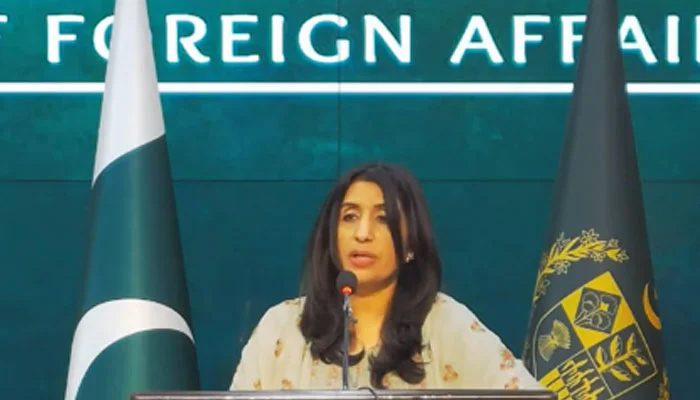Taiwan election: Pakistan reaffirms strong commitment to ‘One China Policy'
"Taiwan inalienable part of People’s Republic of China," Foreign Office reiterates
ISLAMABAD: Pakistan on Saturday reaffirmed its strong commitment to ‘One China Policy’ as it responded to Taiwan’s presidential election.
Pakistan has a “consistent, clear and principled” policy regarding Taiwan which is an “inalienable part of People’s Republic of China”, a statement from the Foreign Office read.
“Pakistan adheres to One China Policy, and calls for non-interference in the domestic affairs of all countries as per principles and objectives enshrined in the UN Charter,” it concluded.
The development came after William Lai Ching-te of the ruling Democratic Progressive Party (DPP) was declared winner in Taiwan's presidential election despite China's warnings not to support him.
During his victory address, Lai promised to protect Taiwan from Chinese aggression while also preserving peace and stability in the Taiwan Strait.
Beijing, which labelled Lai a "severe danger" prior to the ballot and advised voters to avoid him, declared that the outcome would not halt "the inevitable trend of China's reunification."
Responding to Lai’s win, Beijing’s Taiwan Affairs Office spokesperson Chen Binhua said in a statement carried by state news agency Xinhua that “Taiwan is China’s Taiwan”.
“Our stance on resolving the Taiwan question and realising national ‘reunification’ remains consistent, and our determination is as firm as a rock,” it said.
The statement said China would adhere to the one-China principle and firmly oppose the separatist activities aimed at “Taiwan independence” as well as “foreign interference”.
-
Security forces gun down 30 terrorists in multiple IBOs in KP: ISPR
-
MQM-P calls for new province in Sindh
-
US report validates Pakistan military edge over India: PM
-
Banned TTP poses serious threat to Pakistan security: UNSC panel
-
CM Afridi clarifies remarks on by-poll after ECP requests army deployment
-
Dubai sees 3.2m Pakistani passengers in 2025 as airport sets new milestone
-
Security forces kill 23 Indian proxy terrorists in KP's Kurram
-
Pakistan to construct island to boost oil exploration: report












